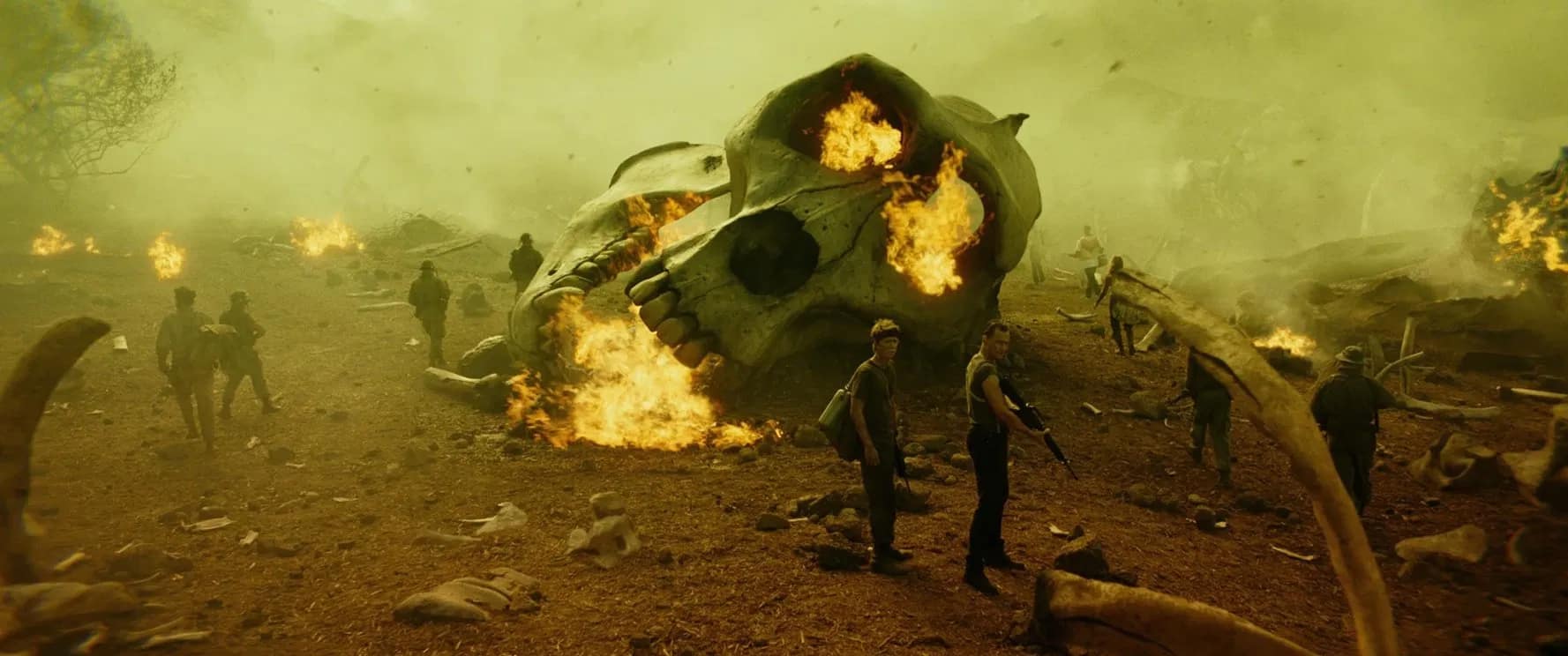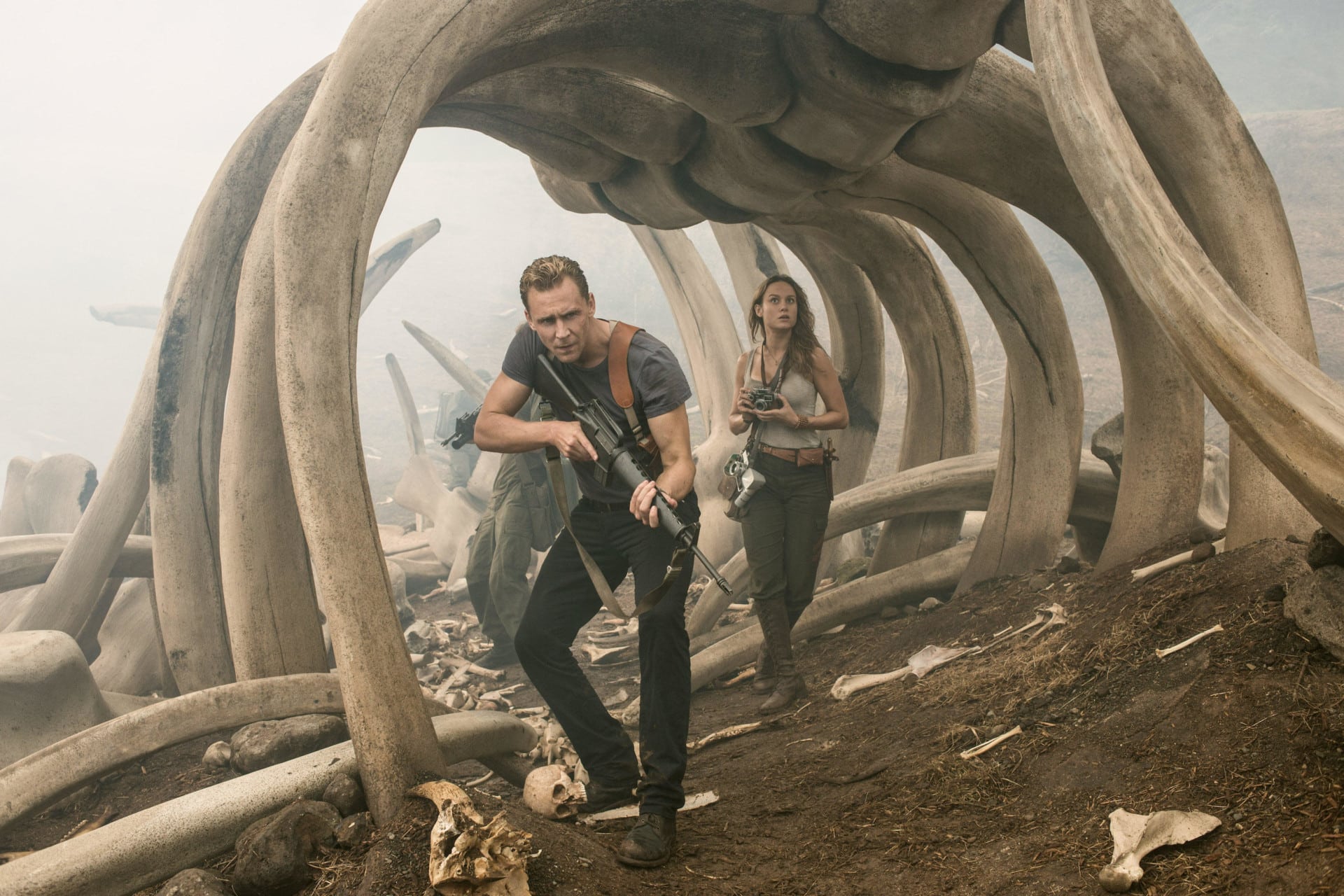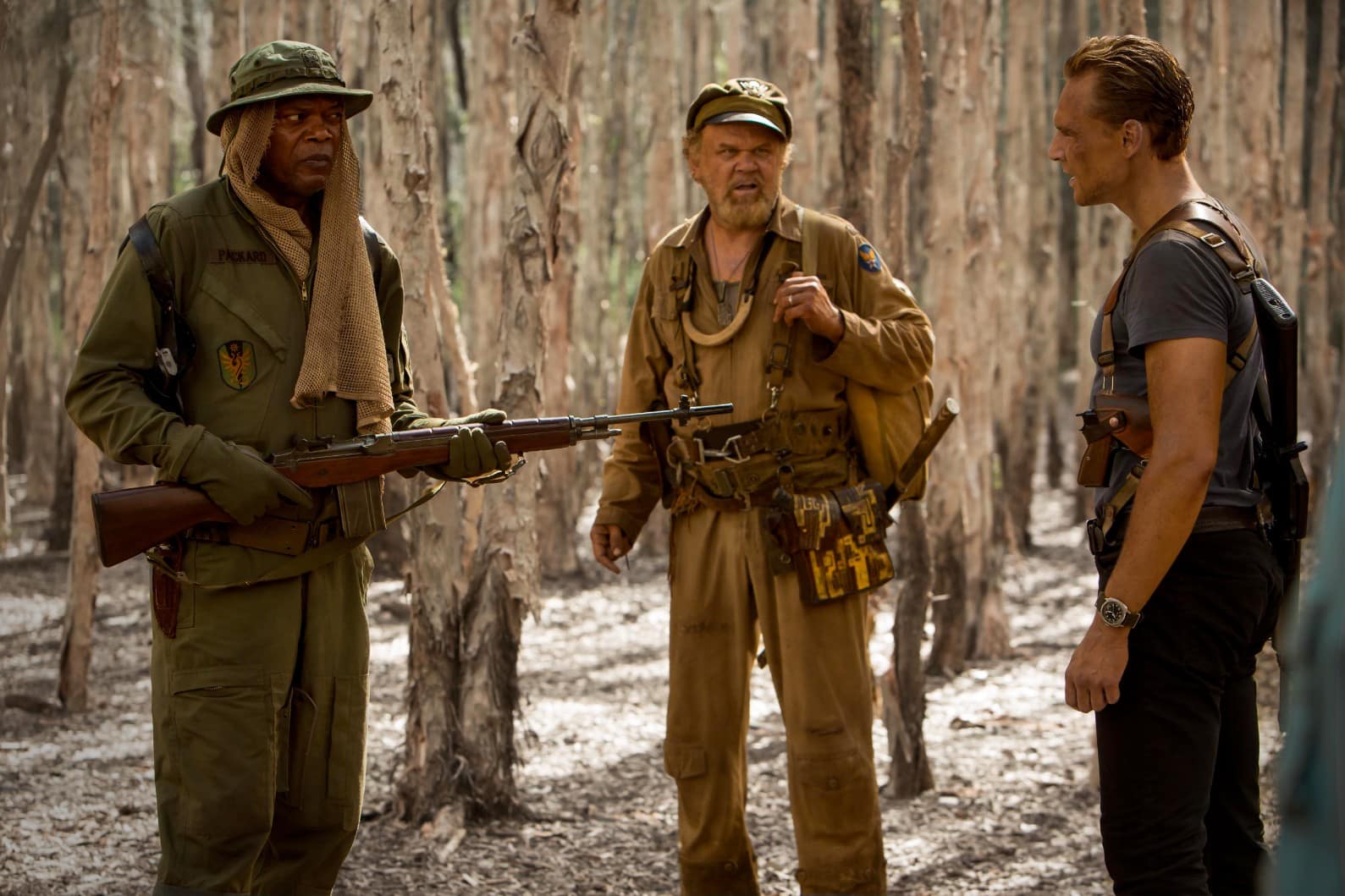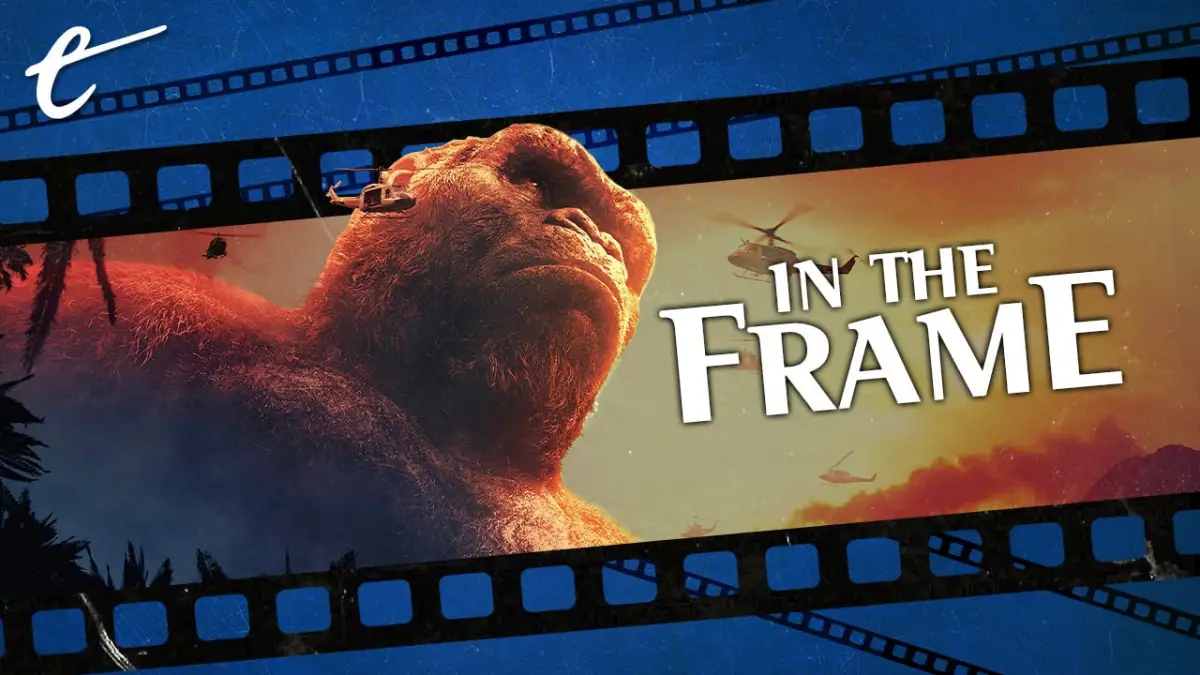Cinematographer Larry Fong has described Kong: Skull Island as “a mash-up between Apocalypse Now, Thin Red Line and Bong Joon-ho’s monster movie The Host.” This unique combination accounts for a lot of what makes Jordan Vogt-Roberts’ 2017 creature feature such an unexpected delight.
Skull Island is the highlight to date of the so-called “MonsterVerse,” the reimagining of classic gigantic monsters produced by Legendary Entertainment and Warner Bros. The studios have struggled somewhat with the other films in the series. While there are aspects to recommend either film, both Godzilla (2014) and Godzilla: King of the Monsters (2019) suffer greatly in comparison not only to Vogt-Roberts’ Skull Island, but also to Hideaki Anno’s Shin Godzilla (2016).
There are multiple reasons why such comparisons fail to flatter Godzilla and King of the Monsters. However, the most immediate point of distinction is that Godzilla and King of the Monsters struggle to be “about” anything in any meaningful way. Godzilla might be read as a metaphor for the reaction to trauma both personal and cultural, but it fails to hammer that theme. King of the Monsters gestures broadly at the idea of environmental apocalypse, but with no more nuance than Geostorm.
In contrast, both Kong: Skull Island and Shin Godzilla have a much deeper understanding of what their monsters are actually saying. Anno constructed Shin Godzilla not only as a commentary on the horrific Fukushima Daiichi nuclear disaster, but also on the ways in which bureaucracy ultimately suffocates those it is meant to protect. Screenwriters Dan Gilroy, Max Borenstein, and Derek Connolly position Skull Island as a commentary on war and its place in human nature.

This is an interesting approach to take with King Kong. Throughout Skull Island, Vogt-Roberts seems to be drawing rather heavily from the iconography and themes most closely associated with classic Godzilla movies. The opening credits focus on the development of advanced weaponry following the Second World War, including the development and deployment of the hydrogen bomb. Historically, the testing of the hydrogen bomb has been more closely tied to Godzilla than to King Kong.
This metaphor was filtered through a Japanese perspective. The original 1954 Gojira drew heavily from the story of the Daigo Fukuryū Maru, the Japanese fishing boat caught in the weapon tests at Bikini Atoll. The inevitable American adaptations of the monster tended to erase the anti-war subtext. It was stripped out of the American release of the original film. More recently, both Godzilla and King of the Monsters ultimately find the creature fighting alongside the United States military.
As such, there is perhaps something to be said for the decision to retrofit these anti-war themes to King Kong, perhaps the quintessential giant American monster. In doing so, Kong: Skull Island more carefully positions the gigantic ape as a counterpart to Godzilla, approaching some of the same ideas from a different vantage point. With Skull Island, Vogt-Roberts offers a collision of war movie and monster movie, which manages to offer a surprisingly deep meditation on the idea of war.
Skull Island is set against the backdrop of the end of the Vietnam War. Early in the film, a television shows Richard Nixon delivering his promise of “peace with honor.” This peace is not treated as good news for some of the major characters. Lieutenant Colonel Preston Packard (Samuel L. Jackson) does not seem happy at the prospect of returning home at the end of the Vietnam War, telling reporter Mason Weaver (Brie Larson), “We didn’t lose the war; we abandoned it.”

More cynically, monster expert Bill Randa (John Goodman) races to get the government to sign off on his expedition while the spending is good, explaining, “We’re broke! When this war ends, we’ll never get approval for our expedition.” After all, war is good for business. Houston Brooks (Corey Hawkins) is only able to convince Senator Al Willis (Richard Jenkins) to fund the expedition by appealing to Cold War anxieties, pointing out the Russians could get there first.
Kong: Skull Island is steeped in imagery and sounds associated with Vietnam. The soundtrack is lifted directly from the cultural memory of the conflict. Early on, soldiers sit around listening to “Time Has Come Today,” which had been featured in the movie Casualties of War and in the first episode of the History Channel’s Vietnam in HD. (More recently, it was used in Spike Lee’s Da 5 Bloods.) Later, the film features “Bad Moon Rising,” which was famously “an anthem for U.S. troops in Vietnam.”
Skull Island offers other visual allusions to the conflict. Late in the film, the characters navigate a burial site decorated by the bones of Kong’s parents. However, it clearly evokes more than just the death of monsters. “I’ve taken enough photos of mass graves to recognize one,” admits Weaver. The sequence devolves into chaos during a monster attack, with the use of brightly saturated green smoke and gas masks recalling photos of Agent Orange dumped on Vietnamese forests.
Vogt-Roberts draws overtly from Francis Ford Coppola’s epic Apocalypse Now. Cinematographer Larry Fong lights Skull Island in strong colors and editor Richard Pearson cuts the movie together like it’s a music video, evoking something of the trippy and hallucinatory quality of Coppola’s war film. At points, Vogt-Roberts seems to lift shots directly, whether sequences of helicopters bombing the jungle or the bold yellow-and-orange imagery of the characters’ first encounter with Kong.

Apocalypse Now is an interesting touchstone beyond the setting. Although set against the backdrop of Vietnam, Apocalypse Now often seems more engaged with the abstract idea of war than the specifics of this war. This mythic framework is suggested in an early conversation with General Corman (G.D. Spradlin), who explains, “There’s a conflict in every human heart between the rational and the irrational, between good and evil. And good does not always triumph.”
In hindsight, it almost makes perfect sense that George Lucas originally wanted to make Apocalypse Now and that, when Coppola took over, Lucas went on to produce Star Wars instead. The two are almost warped mirrors of one another. Apocalypse Now was set in Vietnam, but its timelessness is underscored by the fact that it was adapted from Joseph Conrad’s 1899 novella Heart of Darkness. (In Skull Island, Tom Hiddleston’s protagonist is named James Conrad.)
In Apocalypse Now, as Captain Benjamin L. Willard (Martin Sheen) ventures further upriver and deeper in-country, he is confronted with a variety of surreal and uncanny imagery. The monsters that appear in Kong: Skull Island are only marginally weirder than Willard’s journey into some abstract and primal past. Both Skull Island and Apocalypse Now suggest that war is not something confined to a physical place or a material time, but instead something that stirs in a more primal sense.
In Skull Island, that timelessness is suggested from the outset. The opening scene plays as a riff on Hell in the Pacific, with an American soldier (Will Brittain) and a Japanese soldier (Miyavi) trapped together on the island during the Second World War, becoming unlikely allies and later friends. Years later, when Hank Marlow (John C. Reilly) encounters the new arrivals, he asks, “Hey, what happened with the war? Did we win?” Conrad replies, “Which one?” Marlow sighs, “That makes sense.”

Early in Apocalypse Now, Willard suggests that the Vietnam War is inside him now. “Every time I think I’m going to wake up in the jungle,” he confesses. “When I was home after my first tour it was worse. I’d wake up and there’d be nothing.” Willard brings the war to his Saigon hotel room, tearing it apart. In Skull Island, after reflecting that he became a soldier after his father died in the Second World War, Conrad muses, “I suppose no man comes home from war. Not really.”
However, Skull Island suggests that this idea of war is strictly a human concern; it does not originate in nature. Separated from the group, Major Jack Chapman (Toby Kebbell) has a few close encounters with giant monsters like Kong and a stick insect where the creatures seem to be largely oblivious to his presence. When Packard promises his men, “This is one war we are not gonna lose,” it is clear that he has manufactured a conflict with Kong merely to satisfy the violence within himself.
Many of the creatures in Skull Island are oblivious to the soldiers until they provoke a response. “You don’t go into someone’s house and start dropping bombs unless you’re picking a fight,” Marlow chides the soldiers. Later, Captain Earl Cole (Shea Whigham) explains that he carries an AK-47 he confiscated from a Vietnamese farmer as a reminder that “Sometimes, an enemy doesn’t exist till you go looking for one.”
This is what makes Kong: Skull Island so interesting. This rather more cynical and jaded portrayal of the United States military provides a sharp contrast to the gung-ho patriotism of both Godzilla and King of the Monsters. However, while it fits thematically with the anti-war messaging of the classic Japanese monster movies like Godzilla, it realigns that core theme to reflect the American experience of that same idea rather than that of the Japanese.
As the new arrivals bring Marlow up to speed with world events, much of their discussion is framed in terms of conflicts. “Russia was our ally,” he protests of the Cold War. “Now, you’re saying we’re at war with them?” Like Apocalypse Now, Kong: Skull Island exists in the context of a generation that has come of age with the idea of vaguely defined, ideological, abstract, and all-consuming perpetual war. For Apocalypse Now it was the Cold War, but for Skull Island it is perhaps the War on Terror.
Skull Island is a delightfully and unapologetically pulpy monster movie treat, but it also understands the genre, its history, and its themes. Skull Island wrestles with the real nightmare of war, that it never ends because it rages like a true monster in the hearts of man.






Published: Dec 14, 2020 11:00 am